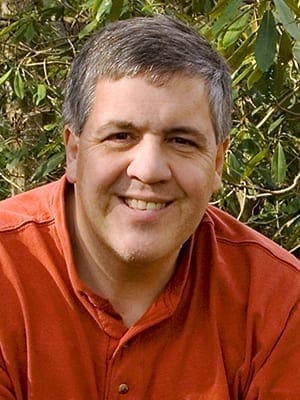Recent events in the news have a lot of people upset and wondering, “What is this world coming to?”
The massacre in Orlando, in particular, causes one to question the sanity of humankind. How could anyone do such a horrible thing?
Of course, the Orlando tragedy is just one of many mass killings we’ve witnessed and the madness of the world can be seen in so many other places.
It can be seen in the genocide taking place in Africa, the Syrian refugee crisis, our mistreatment of God’s good earth, terrorist attacks all around the globe and ongoing racism – just to name a few.
It’s almost enough to want to shout, “Stop the world; I want to get off!”
I will admit that what we see on the news and all around us is enough to lead one to despair.
I do not think, however, that is the path we ought to take. In all the dark places I mentioned above, there is light to be found.
In the aftermath of the Orlando shooting, thousands upon thousands have responded in love by donating either money or blood.
There are lots of people fighting genocide wherever it can be found.
Although many countries have refused to take in the Syrian refugees, lots of other countries have welcomed with open arms those in need of refuge.
Even though we have treated the earth harshly and ended up with lots of environmental woes, countless groups work daily to battle these woes and to improve the health of this planet.
Many people are hard at work each day battling terrorism and the root causes that contribute to it.
Likewise, many recognize the injustice that comes with racism and fight diligently to establish “liberty and justice for all.”
The efforts of good people to overcome evil give me cause not to despair. In fact, they give me hope that things can be better.
Of course, it is my faith in God more than anything else that sustains my hope and keeps me from succumbing to despair. There are many Bible verses that speak of the hope we must cling to.
Jeremiah 29:11 says, “For I know the plans I have for you, declares the Lord, plans to prosper you and not to harm you, plans to give you hope and a future.”
Isaiah 40:31 says, “But those who hope in the Lord will renew their strength. They will soar on wings like eagles; they will run and not grow weary, they will walk and not be faint.”
In Hebrews 10:23, we are challenged, “Let us hold unswervingly to the hope we profess, for he who promised is faithful.”
First and foremost, it is the love and faithfulness of God that give me hope.
In the “Chalice Hymnal” there is a hymn by Georgia Harkness called “Hope of the World.” In the first couple of verses, Harkness offers a prayer that we all might pray at this particular time.
“Hope of the world, O Christ of great compassion: speak to our fearful hearts by conflict rent; save us, your people, from consuming passion, who by our own false hopes and aims are spent. Hope of the world, God’s gift from highest heaven, bringing to hungry souls the bread of life: still let your Spirit unto us be given to heal earth’s wounds and end its bitter strife.”
For eons, the rainbow has been viewed as a sign of hope. I saw one recently and found its appearance timely.
Our church flower garden is now full of Easter lilies, which were planted after the Easter service in March and are blooming again. I saw this also as a sign from nature indicating that there is always hope.
Christians are an Easter people, and the message of Easter is predominantly that of hope.
So whether you are despairing over the world, our country, your church, your family or your own life, let it be known that there is and always will be hope.
My prayer for you is the same as that the apostle Paul offered in Romans 15:13, “May the God of hope fill you with all joy and peace as you trust in him, so that you may overflow with hope by the power of the Holy Spirit.”
 Chuck Summers is a pastor of the First Christian Church (Disciples of Christ) in Henderson, Kentucky. He is also a photographer whose work has appeared in numerous national magazines and calendars; he has published three photography books. A version of this article first appeared on Seeing Creation, a blog that Summers co-authors with Rob Sheppard, and is used with permission.
Chuck Summers is a pastor of the First Christian Church (Disciples of Christ) in Henderson, Kentucky. He is also a photographer whose work has appeared in numerous national magazines and calendars; he has published three photography books. A version of this article first appeared on Seeing Creation, a blog that Summers co-authors with Rob Sheppard, and is used with permission.
Chuck Summers is a pastor of the First Christian Church (Disciples of Christ) in Henderson, Kentucky.

